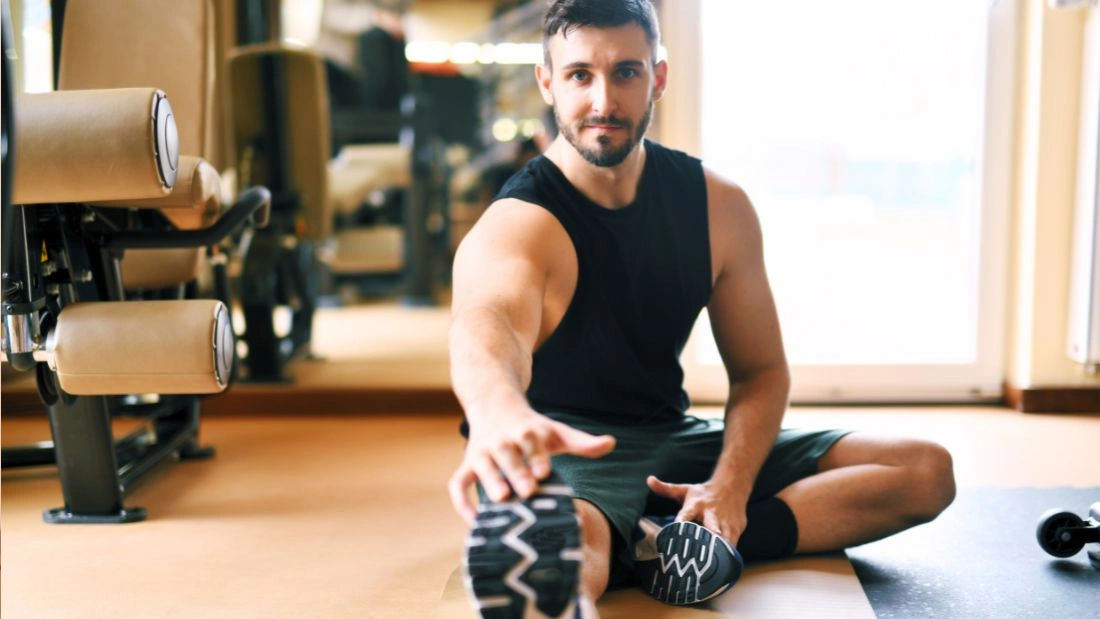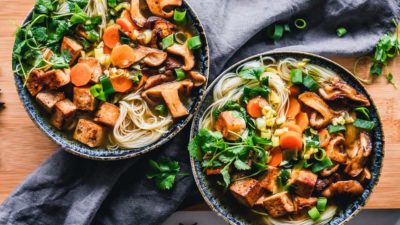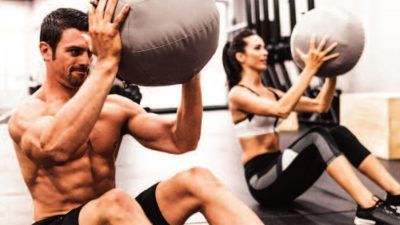Support your fitness routine with diet

A plant-based diet can shift your fitness results to the next level.
Once you start looking into sports nutrition you discover that there’s a host of ‘experts’ claiming to have found the best formula for everyone – providing you buy something from them. The truth is, you don’t need any expensive sports supplements because a balanced vegan diet, tweaked to your needs, is by far your best bet.
Why is a vegan diet ideal for athletes?
It’s quite straightforward – a healthy vegan diet, based around fruit and vegetables, pulses, wholegrains, nuts and seeds, offers huge advantages to athletes thanks simply to its nutrient content.
- Plants provide healthy carbohydrates – vital for long-lasting energy and for replenishing muscle energy stores post-training
- Plants have better protein – easier for your body to digest than animal protein; ideal for muscle recovery
- Plants provide healthy fats – all the essentials, naturally low in saturated fats and no cholesterol. Great for your heart and blood vessels, they support a healthy circulation
- Plants are rich in antioxidants – they help you recover better and faster, reduce inflammation and keep the airways healthy and mucus-free
- Plants contain fibre – needed to keep your digestive system healthy and to feed the good bacteria in your gut, which is important for maintaining good energy levels
A balanced vegan diet can help to increase your stamina, facilitate an ample blood flow to the muscles and speed up recovery.
How to put healthy meals together
A recipe for a healthy meal should consist of these three components:
- Wholegrains or starchy vegetables (wholemeal bread, whole wheat pasta, brown rice, oats, quinoa, sweet potatoes or potatoes) – for complex carbs, protein, vitamins and minerals
- Pulses or nuts and seeds (lentils, beans, chickpeas, edamame, tofu, tempeh, hummus, falafel, bean or veggie burgers, tofu sausages, mock meats, nuts, seeds or nut butters) – for protein, complex carbs, healthy fats, vitamin, minerals, antioxidants
- Fruit or vegetables (fresh, blended, steamed or lightly cooked) – for healthy carbs, fibre, vitamins, minerals and antioxidants
Weight training
Building muscle requires a lot of protein but also healthy carbohydrates to fuel your performance. When it comes to healthy fats (avocado, virgin olive oil, rapeseed oil, nuts and seeds), you can be quite liberal with those as you burn a lot of energy but if you’re a bodybuilder and do the cutting phase, keep fats to a minimum.
Key points:
- The more you train, the more you need to eat. Make sure to distribute your meals evenly throughout the day – three main meals and snacks in between – so your body can absorb maximum nutrients.
- At every main meal, you need a good dose of protein and then more from snacks. If you’re serious about gaining muscle mass, you should have 0.5-1 gram of protein per pound of body weight (1-2 g/kg). Wholefoods are your best bet – try not to rely on processed foods too much.
- During your workout, all you need is water but have a smoothie with protein afterwards to support muscle repair.
Running
For distances under five kilometres, you don’t need any special regime but remember to stay hydrated. Long distance running of more than five kilometres, however, is a different story. You should eat more on training days than on recovery days and include healthy fats, too, as your body needs them for energy and repair.
Key points:
- About 60-40 minutes before training, have a light carb-based snack so your body gets some extra energy. It can be a piece of fruit, fresh smoothie or a fruity snack bar. Eating closer to training might make you feel sick.
- During your run, you’ll need to stay hydrated and to top up carbs on the go to prevent muscle fatigue. Blend dates with water for a sweet energy drink and if you add a small pinch of salt to it, you’ll make it an isotonic drink. Or carry a water bottle and a snack such as a banana or energy bar.
- Post-run, eat or drink a recovery meal within 40 minutes so nutrients get to your muscles quickly for optimal recovery. Good options include a protein shake and dried fruit, fresh fruit smoothie and a protein bar, tofu sandwich, falafel wrap or lentil soup with wholemeal bread.
Endurance athletes
Endurance sports are very demanding and the longer your training, the more you should eat but the principles remain the same.
Key points:
- 1. Planning your meals is crucial to make sure you get enough nutrients in a day. Endurance sports require an increased intake of carbs so make sure you base your main meals around wholegrains, sweet and regular potatoes and corn. Snacks should include fresh and dried fruit, oat and rice cakes, oat and fruit bars, smoothies and even popcorn.
- Your muscles need extra protein. Post-training, you should eat/drink 20-40 grams of protein for muscle recovery. This could be a protein shake, smoothie with nut butters, a bowl of muesli with protein powder or a can of baked beans and wholemeal bread.
- Hydration is vital. Burning a lot of energy also means using up a lot of water. If you don’t replenish lost fluids, you’ll tire sooner. If you train for an hour, water is enough but for longer training, an isotonic drink can be a lifesaver.
Yoga
Yoga is all about body and mind connection, functional strength and mobility. It doesn’t usually require lots of energy but the right kind of fuel will help you move and feel better.
Key points:
- You should leave at least three hours between a main meal and practicing yoga. A full stomach could make some yoga poses downright impossible or might make you feel sick.
- 2. If you need a pick-me-up before a yoga class, have a banana, smoothie, energy ball or a few dates about 40 minutes before you start.
- Make sure you eat enough and include good protein sources. You may be tempted to eat light after yoga practice and that’s ok but do make quality protein sources staples of your diet to make sure your muscles are well-nourished.







